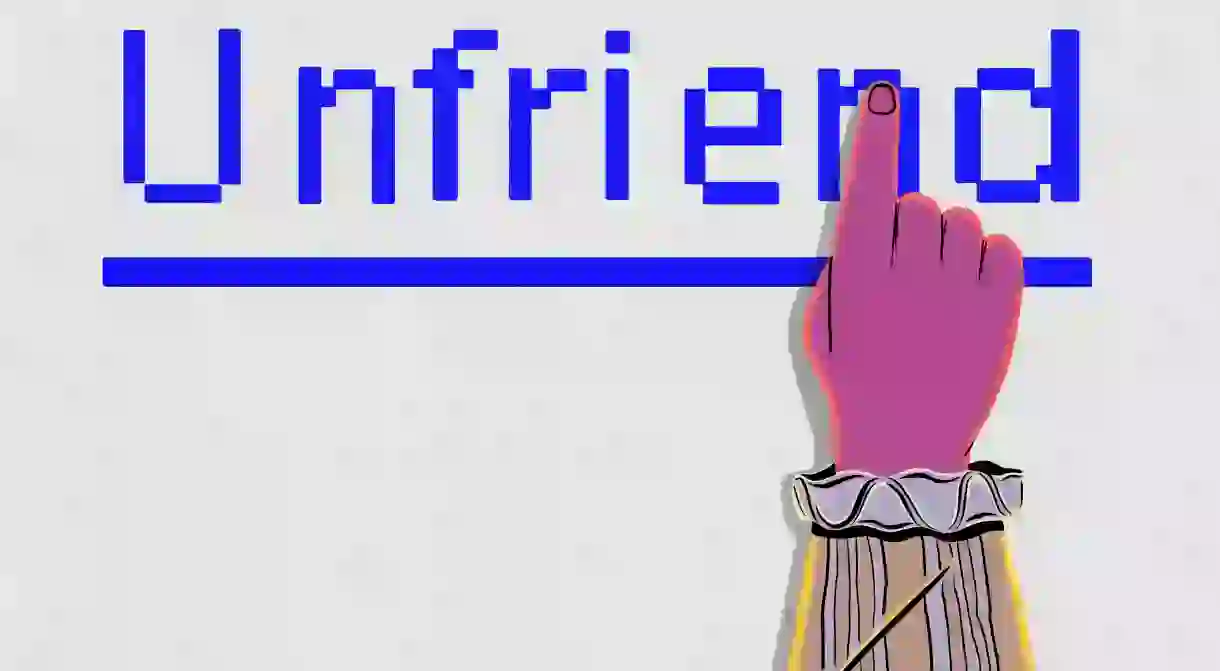‘Unfriending’ Has Been Around a Lot Longer Than Facebook

Many have been on the receiving end of a brutal ‘unfriend’ on Facebook, but they’ve likely ‘unfriended’ just as many people in return.
The year is 2014. The Merriam-Webster dictionary has just unveiled its list of ‘new’ words it’ll be officially adding to the dictionary. ‘Baby bump’, ‘crowdfunding’, and ‘fangirl’ have made the cut. So has ‘unfriend’ but unbeknownst to most, ‘unfriending’ as a verb wasn’t invented by Mark Zuckerberg.
Defined as ‘to remove (someone) from a list of designated friends on a person’s social networking site’, it’s noted that the first year of recorded use was in 2003, which predates even Facebook and its ‘unfriend’ button.
However, the rival Oxford English Dictionary (OED) puts the use of ‘unfriend’ as starting much, much earlier…albeit with a different meaning. ‘Unfriend’ was once semi-synonymous with ‘enemy’ in the 13th century. Some sources put the date at a rather specific 1275, while the OED suggests it made its first appearance in the same late 12th or even early 13th century Middle English poem Brut, by Laȝamon, that also used the word ‘muggle’.
As a noun, ‘unfriend’ does make sense; ‘un’ – a prefix with Proto-Germanic roots and wide usage in Old English – means ‘not’. So, ‘not friend’ = ‘enemy’.

The noun ‘unfriend’ wouldn’t morph into a verb until 1659 when it cropped up in a letter penned by the English clergyman, Thomas Fuller. Then, thanks to William Shakespeare, ‘unfriend’ as a verb appeared in Twelfth Night and King Lear. While Fuller said the state of being ‘unguided and unfriended’ is rough and inhospitable’, in Shakespeare’s King Lear, it was used in the following context; ‘Unfriended, new adopted to our hate.’
Shakespeare’s mention of ‘hate’ in association with the act of being unfriended does resonate in modern times. A 2013 survey found that unfriending someone typically comes when the individual in question posts hate speech. Other actions leading to being ‘unfriended’ on Facebook include posting too much, posting about mundane things, bragging, and sharing unprovoked opinions on polarising subjects. There are, of course, the ‘unfriends’ that occur because a real-world friendship or romantic relationship has broken down.
Either way, next time a click of the ‘unfriend’ button feels warranted, remember that Shakespeare, Middle English poets and 17th-century clergyman have been there, done that too.













